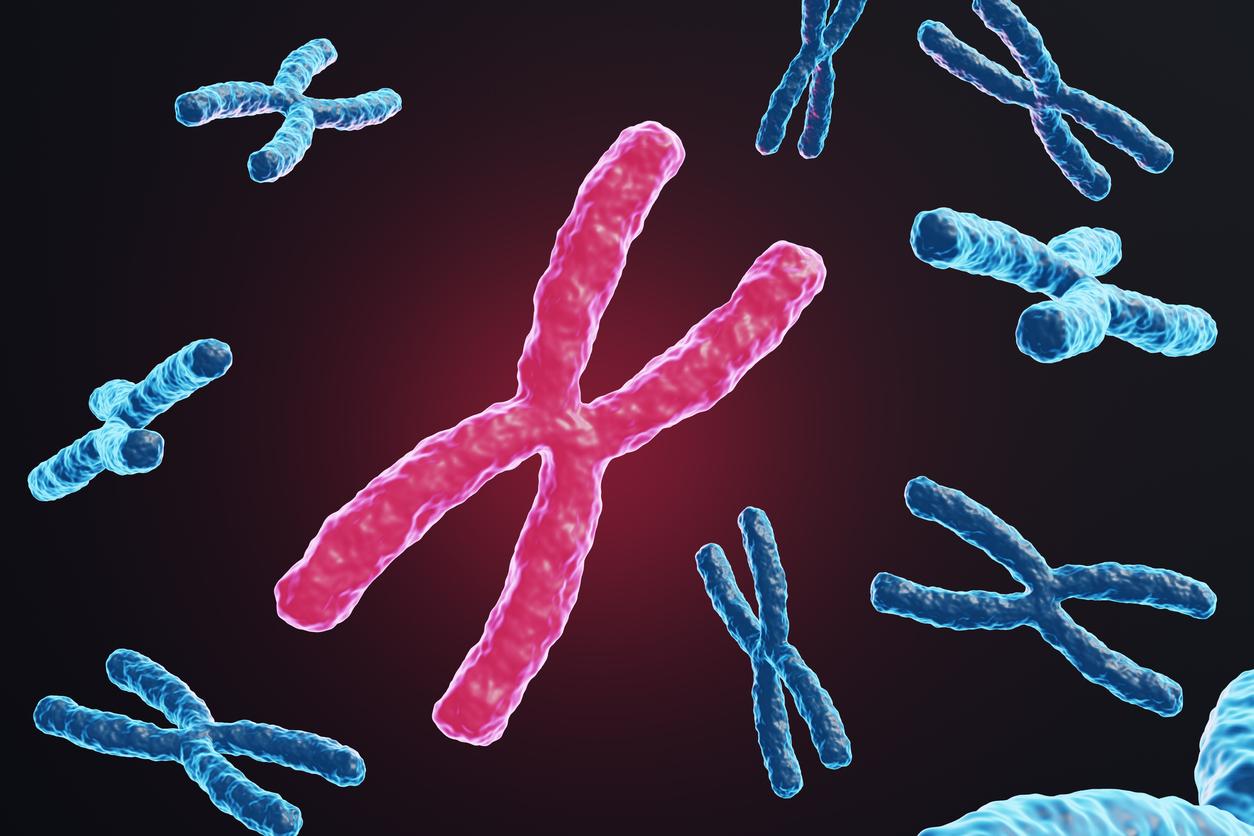An enzyme blocking learning and long-term memory in people with trisomy 21 could be inhibited thanks to this new drug.
-1574178765.jpg)
Trisomy 21, also called Down syndrome, is a congenital chromosomal anomaly which would be explained by a third chromosome (called supernumerary) on the 21st pair of human chromosomes. According to one study presented in 2018 during a congress on the subject in Glasgow (Scotland) and carried out by Gert de Graaf, Frank Buckley and Brian Skotko, the researchers estimate that France would have around 35,000 people with trisomy 21. This chromosomal anomaly would lead, in particular, to a deficit in cognitive development. Researchers from the University of California, San Francisco and Baylor College of Medicine in Houston, Texas (USA), have found that the learning and memory deficits caused by this disease could be corrected. Using animal models of Down syndrome, scientists have corrected learning and memory deficits with drugs that target the body’s response to cellular stress. The results of their study were published on November 15 in the journal Science.
According to the researchers, some impairments linked to trisomy 21 originate in the hippocampus, the part of the brain crucial for learning and long-term memory. They found that these changes can be reversed in Ts65Dn mice, which mirrors the genetic, behavioral and cognitive characteristics of trisomy 21 in humans. They administered drugs targeting one of the cell’s main stress pathways in mice and found that protein levels normalized, completely reversing the cognitive defects. This is an important development, given that the cognitive decline associated with Down’s syndrome has so far been considered irreversible. This leads to the possibility that the cognitive function of people with trisomy 21 is improved by the use of these compounds.
The determining role of proteins
Efforts to understand how trisomy 21 works have generally been restricted to genetics, because this condition is caused by an extra copy of chromosome 21. Until now, scientists have mostly focused on how the chromosome supernumerary disrupted the functioning of other genes. In this new study, scientists investigated the phenomenon of “proteostasis”, i.e. the mechanism of manufacture and quality control of proteins in the cell in trisomy 21. While most researchers focused on individual genes on chromosome 21 to determine which were linked to trisomy 21, the research team preferred to examine proteostasis to better understand its defects and their possible involvement in the chromosomal abnormality.
By studying the Ts65Dn mouse (which has most of the cognitive abnormalities found in the human version of trisomy 21), using a polysomal profiling technique (to examine the sites of protein manufacturing in the cell), the he team found that protein production in the hippocampus of these mice was up to 39% lower than the others. This finding led researchers to a new puzzle: why did extra copies of genes lead to lower protein production?
Researchers found that cells in the hippocampus of mice with trisomy 21 exhibited the integrated stress response (ISR), a biological circuit that is alerted when something is wrong in order to trigger a protective reaction that reduces the production of proteins.
According to Peter Walter, professor of biochemistry and biophysics at UCSF and co-lead author of the study, the cell constantly assesses its health, and that when it detects an abnormality, it reacts by reducing protein production. However, since protein synthesis is necessary for higher cognitive functions, reducing its production leads to pathology of memory formation. The scientists found that the integrated stress response was also active in post-mortem samples of brain tissue from people with trisomy 21. By studying these samples, whose cells contained the third copy of chromosome 21, they discovered the presence of the integrated stress response. This therefore suggests that the integrated stress response is not only involved in certain symptoms of Down syndrome, but that it could also be the cause.
Blockage of an enzyme
The integrated stress response is activated by four different enzymes, but only one, PKR, is involved in activating the integrated stress response in hippocampal cells. To prevent this response, the scientists blocked PKR, which restarted the production of proteins in the brains of mice with trisomy 21, significantly improving the mice’s cognitive functions.
The researchers used three techniques to reduce the integrated stress response. They deleted the PKR gene, used a drug to suppress PKR function, and administered a drug that activates protein manufacturing, called ISRIB. Collectively, these three approaches led to improved cognition, which was measured in two tests of memory and learning.
These changes were both behavioral and physiological in nature. Thanks to the inhibition of the integrated response to stress, the functioning of the synapses of mice with trisomy 21 improved. This progress is all the more important since synapses are the spaces between nerve cells where the changes associated with learning occur. After blocking the integrated stress response, the researchers found that the brains of Down syndrome mice transmitted fewer inhibitory signals, which made it difficult for the brain to acquire and form new long-term memories.
Despite these findings, Peter Walter believes there is still much to do. Even so, this research could well be the first step towards developing new therapies that could improve many lives.
.

















